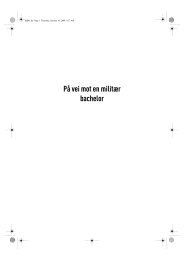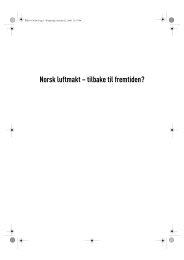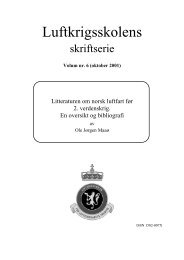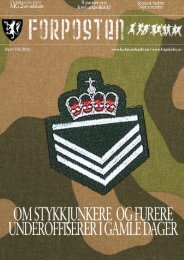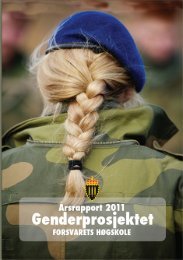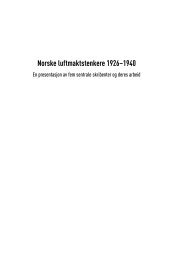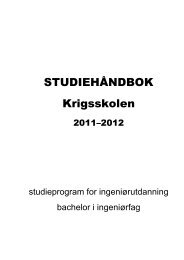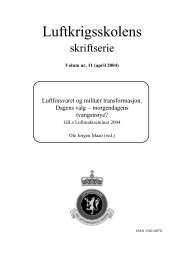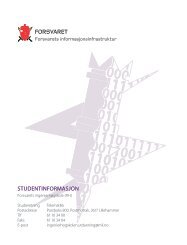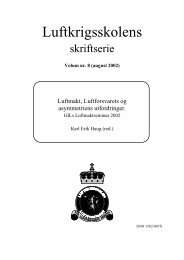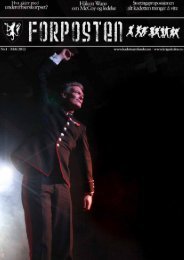Wilhelm Mohr
Wilhelm Mohr
Wilhelm Mohr
Create successful ePaper yourself
Turn your PDF publications into a flip-book with our unique Google optimized e-Paper software.
<strong>Wilhelm</strong> <strong>Mohr</strong>. On World War II<br />
On 21 December, the Wing was ordered to another airfield, B79 near<br />
Woensdrecht in Holland. At the beginning it was difficult to start all<br />
over again in terms of the ’comfort specialities’ which the season called<br />
for, and by then periods of snowfall had become common. In addition,<br />
another challenge arose. The Wing had hardly arrived, when rumours<br />
spread of a large German force gathering on the north side of the river<br />
Maas. Supposedly, this included paratroopers and SS special forces. The<br />
Allied defence forces in the area were very limited, so the Wing’s own<br />
anti-aircraft artillery unit was assigned to the front along the river.<br />
The day before Christmas, 23 December, the Wing received orders<br />
to be on the alert and establish full readiness. This included, for<br />
instance, having access to weapons at all times, sleeping with one’s<br />
clothes on, all vehicles being ready and loaded to the extent possible,<br />
storage rooms prepared to be destroyed, and so forth. Yet at the same<br />
time, flying operations were to be upheld. A quotation from General<br />
Mehre’s account may serve to give some insight into the situation:<br />
This readiness created a strange atmosphere, especially for those who were preparing<br />
for the Christmas celebration. The chaplain and his closest aides received word to<br />
continue their arrangements, and thereby a situation rose which most people will<br />
probably remember: Christmas dinner with Norwegian food, Christmas presents<br />
and singing as they processed around the decorated Christmas tree, but it has hardly<br />
previously been done singing ’Wonderful is the Earth’, ’Peace on Earth’, with guns<br />
over their shoulders and pistols on their hips.<br />
To put this quotation in a wider context, it should be borne in mind that<br />
the crew was a hardened group. First and foremost, they did their job,<br />
took hardships as they came, and weighed the threats carefully. They<br />
worked together, but could also spend time together. This represents<br />
qualities that mostly say something about the crew themselves. Still, the<br />
characteristics of this enterprise were that the aircraft were dispersed<br />
on the airfield, and the working environment was equally dispersed<br />
and vulnerable. This could have given a sense of isolation and despair.<br />
Therefore, the strain was more an issue based on personal premises than<br />
originating from being part of an organized and armed fighting force.<br />
90



